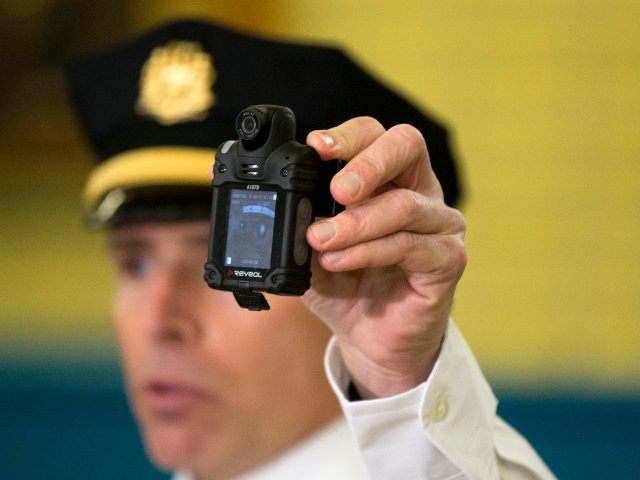In the wake of the ongoing events in Baltimore, the Justice Department Friday is announcing a $20 million body-worn camera pilot program for law enforcement agencies.
“This body-worn camera pilot program is a vital part of the Justice Department’s comprehensive efforts to equip law enforcement agencies throughout the country with the tools, support, and training they need to tackle the 21st century challenges we face,” Attorney General Loretta Lynch said Friday.
“Body-worn cameras hold tremendous promise for enhancing transparency, promoting accountability, and advancing public safety for law enforcement officers and the communities they serve,” she added.
The Body-Worn Camera (BWC) Pilot Partnership Program is part of President Obama’s $75 million proposal to purchase 50,000 body-worn cameras for law enforcement over three years. Friday’s announced program will include $17 million in competitive grants for body-worn cameras, $2 million for training, and $1 million to look at “best practices.”
The Justice Department says it expects to award 50 grants to law enforcement with about a third directed to “smaller” agencies. It will be administered by the Bureau of Justice Assistance (BJA) under the Justice Department’s Office of Justice Programs (OJP)
“Body-worn camera technology is a valuable tool for improving police-citizen relationships,” added BJA Director Denise O’Donnell. “BJA is committed to helping law enforcement agencies identify the safest and most effective methods for deploying this technology and addressing factors such as privacy, archiving and legal regulations surrounding its use. BJA stands by to guide agencies through what can be a complex process toward more successful adoption of the technology.”
This month the BJA is expected to launch a toolkit about the program online that, according to the Justice Department “will focus on implementation requirements, retention issues, policy concerns, interests of prosecutors, victim and privacy advocates’ concerns, along with community engagement and funding considerations.”

COMMENTS
Please let us know if you're having issues with commenting.